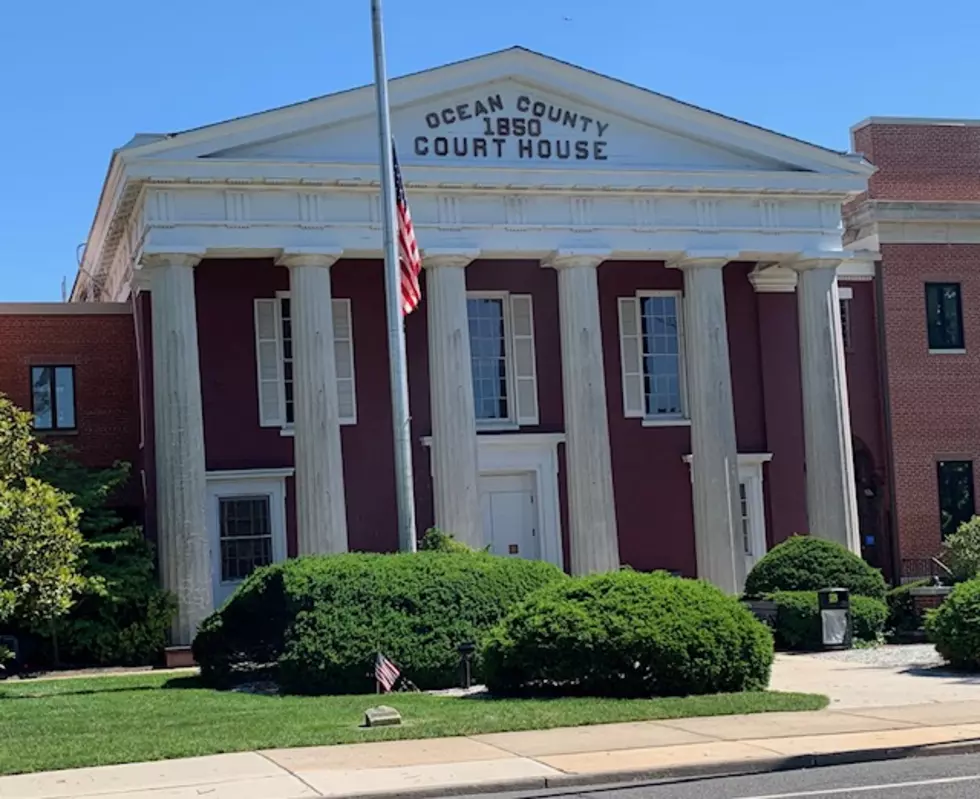
New Jersey DEP Commissioner maps out plans for 2017
One of the items on last week's menu at the Ocean County Mayor's Association Meeting in Toms River for DEP Commissioner Bob Martin was protecting New Jersey's ocean front...with plans to resolve those issues expected to take a while.
The U.S. Army Corps of Engineers has projects in place to protect New Jersey's ocean front, but Martin says those long term plans to fix the back bays are about two years away from a due date on those schematics.
The challenge from there is answering the riddle of where federal funding will then come from when the dollars dry up.
"Their plan isn't due until 2019 and that's still going to require federal funding after that," said Martin. "We don't know how that's going to work out long term, given the fact that they're still going to be putting in significant money into our beach replenishment projects."
The DEP is asking towns with flood concerns to incorporate strategies and costs into their maintenance plans.
"Those plans may be five-year, ten-year, fifteen-year, twenty-year plans, but we don't know what it is," said Martin. "The towns are going to have to invest in these plans overall."
Public access in New Jersey beachfront towns run in proportion to their sizes and configurations, causing some angst among shore homeowners but Martin says they can rest easy.
New Jersey Senators Christopher "Kip" Bateman (R) and Bob Smith (D) already sponsor a bill (S-2490) that underwent conversation in 2016 including during an August meeting in Toms River, to demand that the NJ DEP beach access policies follow the principles of the Public Trust Doctrine, which aims to prevent access from becoming a factor in DEP permit approvals.
"All these towns have a fair amount of public access...in fact excellent public access by in large," said Martin. "In a few places it gets a little bit tighter because they don't have as many walkways out to it, but again, by in large all the beaches have great public access."
In an ongoing court battle with Bayhead over beach access, Martin believes when all is set and done the state will prevail there as well.
Getting permits, let alone simply applying for them can be strenuous and time-consuming for municipalities and residents involved in various projects.
Martin explains that he's managed to dramatically reduce the wait time since he's been in office.
"We have fixed the process of getting permits, how you get permits, how you apply for permits and using technology, fixing terminology, fixing the ability to get permits in reasonable time frames that we didn't have before," said Martin.
He adds that the changes smooth the permitting process without bludgeoning environmental principles.
Environmental officials continue to keep a painfully close eye on the Oyster Creek Nuclear Power Plant in Lacey Township as it advances towards decommissioning and closure.
Martin explains that no one wants spent fuel rods lying around, but neither the state nor Exelon have control of where they're stored.
"Those rods will remain there for a while because they have to cool off in the spin fuel pool first and that could take up to five-years itself," said Martin.
He adds that once cooled, the rods can move into dry casks where they can remain for a long period of time, but he says that they must, at some point, be taken away.
More From WOBM:
More From Beach Radio









